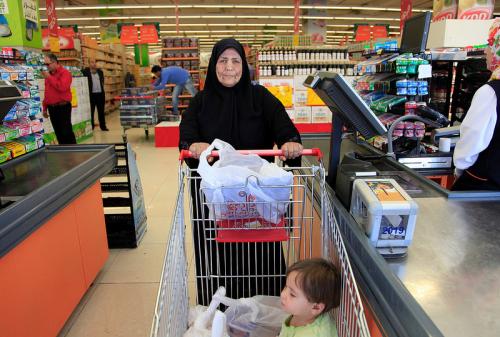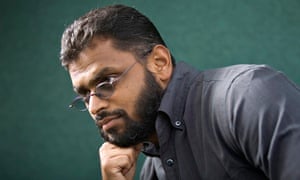
'In Syria, the regime and Islamists publish videos demonstrably showing their human rights violations. Mid-East expert Bente Scheller of the Heinrich Böll Foundation explains the intentions behind this in a DW interview.
Q. "You're saying the regime has also distributed such videos?"
A. "Yes, we saw this in a truly bizarre form at the beginning of the conflict. There are countless videos available on YouTube that show members of the regime torturing people. At first, we thought that these films had been captured, for example, on the cell phones of regime soldiers who were arrested or killed. But that wasn't the case at all. Many of the videos were sold by the protagonists themselves, who were proud of being seen this way. There was clearly an utter lack of any kind of guilt. These people were sure they were going to evade punishment."
Q. "Can one observe changes in the violations over the course of the conflict?
In the first year, we actually only saw human rights violations by the regime. There were six months where the revolution didn't have any armed fighters. By now, we have so many videos that it's hard to tell whether there has been a change in the radicalism.
A. "The general assumption is that all sides commit these violations, which is correct to a certain degree. But that doesn't mean that they commit them in equal measure. It's been clear and it's still clear that the regime prevails here in a sad way by killing and torturing significantly more often. And they are documenting it in an extremely self-assured way, too."
In the first year, we actually only saw human rights violations by the regime. There were six months where the revolution didn't have any armed fighters. By now, we have so many videos that it's hard to tell whether there has been a change in the radicalism.
A. "The general assumption is that all sides commit these violations, which is correct to a certain degree. But that doesn't mean that they commit them in equal measure. It's been clear and it's still clear that the regime prevails here in a sad way by killing and torturing significantly more often. And they are documenting it in an extremely self-assured way, too."
Q. "Human rights violations by Islamists take up more and more space in the Western perception. Does this serve both Islamist as well as regime propaganda?"
A. "Yes, regime interests meet Islamist interests here. The former party wants to present the Islamists as the gruesome opposition and imply that if Assad fell, the whole country would be dominated by Islamists. The Islamists, on the other hand, find it useful to be perceived as ruthless and cruel. They are fighting for power after all. So the propaganda interests of both sides go hand in hand." '
A. "Yes, regime interests meet Islamist interests here. The former party wants to present the Islamists as the gruesome opposition and imply that if Assad fell, the whole country would be dominated by Islamists. The Islamists, on the other hand, find it useful to be perceived as ruthless and cruel. They are fighting for power after all. So the propaganda interests of both sides go hand in hand." '










